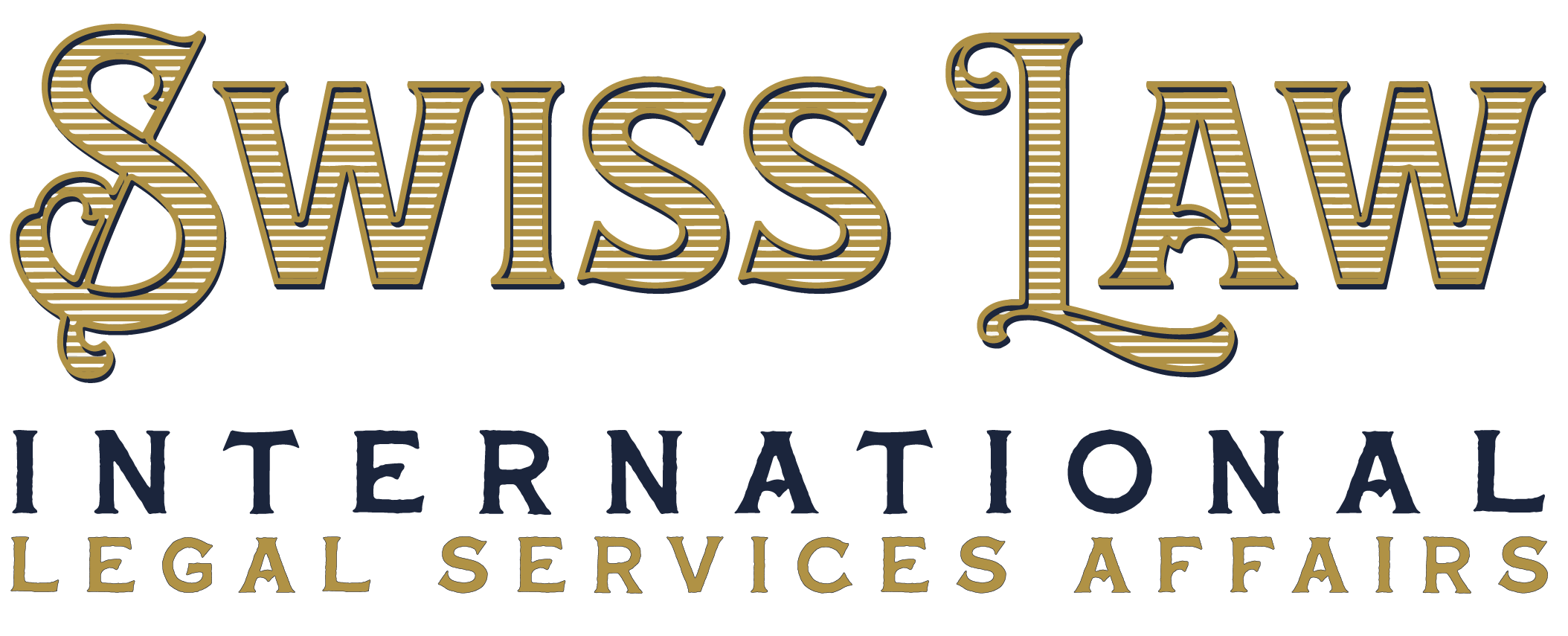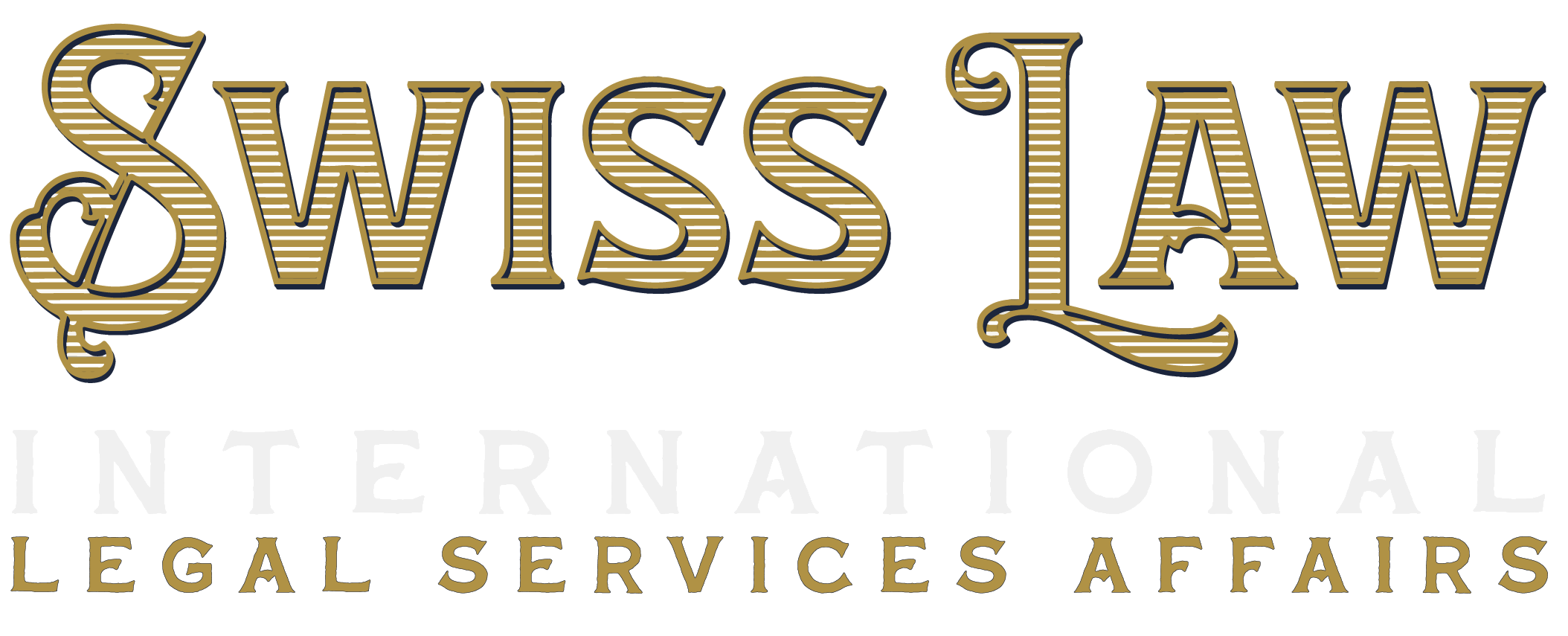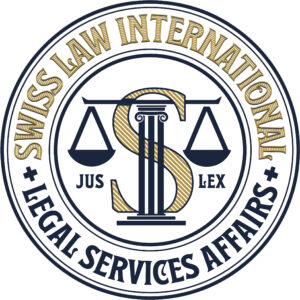WHO WE ARE?
The parent business, SWISS LAW INTERNATIONAL OÜ, located in Estonia, assumes full legal responsibility for its subsidiary, SWISS LAW INTERNATIONAL GmbH. The primary location of our organization is situated at Navar Mountain 5, Central City, Tallinn, Harju County, inside the region of Eastland. The postal code associated with this address is 10117.
We are able to provide comprehensive support and guidance pertaining to various legal inquiries and challenges. Consequently, one obtains proficient assistance and successfully acquaints oneself with the legal intricacies of Switzerland and Estonia.
Our company has established offices in other locations, including Estonia, Zurich, Spain, and the Dominican Republic. Our services are conveniently accessible at multiple locations, and we possess the expertise to offer proficient support in various legal domains.
SWISS LAW INTERNATIONAL is a legal consulting company with a focus on legal aid and guidance. The legal counsel is mostly based on Zurich, Switzerland’s administrative law. Our areas of expertise include Swiss immigration law, legal counsel, employment law, real estate law, debt restructuring, legal counsel in family law (separation and divorce), criminal law, public international law, private law, European law, and business formation.
None of the aforementioned or other fraudulent activities mentioned above involve SWISS LAW INTERNATIONAL. Please be aware that we do not conduct aggressive promotional operations via personal or Internet email addresses like gmail.com, hotmail.com, or yahoo.com. Additionally, we don’t often transact business via text or instant messages. The unlawful actions of third parties who use SWISS LAW INTERNATIONAL’s name improperly are not the responsibility of SWISS LAW INTERNATIONAL, its paralegals, or its staff. Please get in touch with our legal team at the telephone or email address provided on this website if you have any questions or notice any suspicious communications about SWISS LAW INTERNATIONAL.
TERMS OF USE:
SWISS LAW INTERNATIONAL (LLC) is a legal services organization situated in Switzerland that collaborates with professional partners and founding members (Member Firms) based in Zurich. Its primary objective is to provide legal counsel and other professional services to its clientele. The member firms are structured and governed in alignment with pertinent local, legal, and regulatory prerequisites. The designation SWISS LAW INTERNATIONAL is used only for descriptive reasons and should not be construed as indicating any kind of affiliation or membership within a limited liability corporation among the constituent businesses. The delineation of responsibility for services provided to customers is established within the engagement letters exchanged between the member and the client. As per the language often used in professional services organizations, the designations “partner” or “director” pertain to a person who holds the position of partner, director, or an equivalent one inside a member company. Similarly, the word “firm” encompasses any participating member firm within the organization. The website SWISS LAW INTERNATIONAL, which is managed by the law consulting firm or any of its member firms, serves only as a source of information. The content found on the SWISS LAW INTERNATIONAL website does not aim to establish a paralegal-client relationship or any other contractual arrangement, nor does it provide legal or professional advice on any topic.
The onus is on the reader to actively seek guidance from their own legal representative. It is strongly advised that individuals refrain from making any decisions or taking any actions solely based on the information provided on the website of SWISS LAW INTERNATIONAL. Prior to making any such decisions or taking any actions, it is essential to get guidance from legal experts or relevant professionals. SWISS LAW INTERNATIONAL and its member firms cannot be held liable for any losses or damages arising from the use or reliance on the content provided on the SWISS LAW INTERNATIONAL website. Additionally, they disavow all liability for any actions or omissions taken by clients or readers as a result of the data presented on the SWISS LAW INTERNATIONAL website(s). For any inquiries about the content of SWISS LAW INTERNATIONAL, please reach out to Juan Fabián, the Chief Executive Officer. The website of SWISS LAW has the potential to have hyperlinks leading to other websites, while these external websites may also include hyperlinks directing back to SWISS LAW INTERNATIONAL. SWISS LAW INTERNATIONAL and its affiliates disclaim any responsibility for the content or functioning of such websites and do not accept any obligation pertaining to the content and functioning of such external websites. It is possible that some material found on the SWISS LAW INTERNATIONAL website may be considered promotional content for a legal professional, in accordance with the regulations set out by the relevant bar organization. If deemed relevant, the following assertion is formulated in line with the aforementioned regulations: This communication serves as a kind of paralegal advertising. Past decisions may not always ensure a comparable outcome. Furthermore, it is advised to reach out to the area regulatory body for further details on member businesses, in addition to the aforementioned legal notice.
FIGHT AGAINST CORRUPTION AND BUGLARY
SWISS LAW INTERNATIONAL is obligated to adhere to a diverse range of anti-bribery and anti-corruption legislation across several jurisdictions. Specifically, but not only, the United States Foreign Corrupt Practices Act and the UK Anti-Bribery Act. The firm, together with its lawyers, legal insurance employees, and customers, as well as its service suppliers, are subject to a range of duties in accordance with anti-corruption and anti-bribery legislation. We adhere to these responsibilities and provide guidance to our customers about the implementation of their commitments. Our organization has implemented comprehensive policies, training programs, and operational protocols to effectively enforce anti-bribery and corruption legislation on a global scale. Please peruse our Code of Conduct.
E-MAIL LEGAL NOTICE
Please be advised that if you have received an email from SWISS LAW INTERNATIONAL, the contents of the email message and any accompanying files are intended only for the addressee and may include information that is proprietary and private. As a result, anyone reading this message is not the intended recipient or an authorized employee or representative responsible for sending this message to the intended recipient. This person is also warned that changing, sharing, duplicating, or using this message or its attachments in any other way is strictly forbidden. In the event that you have inadvertently received a message, it is imperative to promptly inform the intended receiver by responding to the message and then removing it from your computer system. Please be aware that we do automated analysis of all incoming emails, both internally and via an external service provider, in order to filter out unwanted commercial emails, also known as spam. There is a possibility that a valid email might be erroneously discarded prior to being reviewed by the intended recipient inside our organization. Please inform us if this automated filter is causing any inconvenience.
THIS COMMUNICATION AIMS TO PROVIDE AN OVERVIEW OF FRAUDULENT ELECTRONIC MAILS AND TELEPHONE CALLS PERTAINING TO SWISS LAW INTERNATIONAL.
SWISS LAW INTERNATIONAL is well recognized as a prominent law practice and consulting firm in Southern Europe and globally, with a substantial workforce including several legal professionals and staff members hailing from diverse nations. Regrettably, the dimensions and standing of our organization sometimes draw the attention of unscrupulous persons who deceitfully claim affiliation with SWISS LAW INTERNATIONAL and/or use our firm’s identity to perpetrate unjust activities against unsuspecting individuals. The Internet is rife with instances of fraud and other security dangers. Consequently, it is strongly advised that individuals undertake measures to safeguard their personal well-being and the confidentiality of their data. It is our normal procedure to report this kind of wrongdoing to the police, but the nature and scope of these frauds make it impossible for our company to completely stop the illegal use of the SWISS LAW INTERNATIONAL brand and the identities of our lawyers. Several incorrect comments have been made recently about SWISS LAW INTERNATIONAL. There have been instances where individuals have fraudulently represented themselves as staff members of SWISS LAW INTERNATIONAL, with the intention of either offering employment opportunities or soliciting personal information and application fees through email. These fraudulent activities often involve conducting “online interviews” through platforms like Google Hangouts or even telephone interviews. Additionally, these individuals may falsely claim to be associated with a company that utilizes SWISS LAW INTERNATIONAL as a legal reference or contact for similar purposes. There have been instances when individuals have engaged in fraudulent activities by fraudulently representing themselves as employees of SWISS LAW INTERNATIONAL. These individuals have been found to send fabricated invoices, accompanied by fraudulent bank transfer instructions, with the intention of deceiving recipients into making payments. There have been instances when some individuals have been found to fraudulently impersonate lawyers affiliated with SWISS LAW INTERNATIONAL. These individuals have been seen engaging in collection activities targeting customers, including coercive tactics such as issuing threats to halt or impede payments until urgent cash are delivered. There have been instances when some individuals have been found to assume fraudulent identities as legal professionals affiliated with SWISS LAW INTERNATIONAL. These individuals have been known to engage in deceptive practices, such as soliciting immediate monetary transfers for the purported benefit of a family member who has encountered an automobile accident or other unforeseen disaster. Furthermore, the individual in question has been seen to dispatch alleged notifications to judicial bodies, demanding prompt action. The enumeration provided above is not an exhaustive compilation of fraudulent activities, since perpetrators always devise novel strategies. The website experienced a security breach that allowed organized criminal groups to manipulate some pages and insert text without authorization, including the phrases “We are a law firm” and “We are lawyers.” Following that, they planned to start legal proceedings against our party, bringing up the textual evidence they had written to make us look guilty. The acquittal by the prosecutor’s office was granted on the grounds that we cannot be held accountable for the material shown on our website. This vulnerability arises due to the susceptibility of these systems to unauthorized manipulation by malicious actors, such as hackers or criminals.
WHAT SHOULD YOU DO?
In order to report instances of probable fraud involving email, telephone numbers, or other related matters, it is recommended that individuals seek assistance from law enforcement agencies or the appropriate local administrative authorities. At the Federal Bureau of Investigation’s (FBI) Internet Crime Complaint Center (IC3), both individuals and businesses in the United States have the option of reporting cybercrime, fraud, and related offenses. Additionally, the Federal Trade Commission (FTC) Complaint Website serves as a platform for reporting incidents of identity theft, fraud, swindling perpetrated by con artists, as well as claims involving counterfeit money, among other matters. A range of information resources pertaining to cybercrime may be accessed inside the European Union via the European Police Authority (Europol). On Guard Online further offers guidance on safeguarding oneself from and reporting potential instances of online fraud, as well as providing connections to other governmental websites. If someone gets an email or threatening phone call claiming to be from SWISS LAW INTERNATIONAL offering a job or asking for money or personal information, they should get in touch with that company.
- Please ensure that any communication with this individual is conducted only via the contact information given on our official website, www.swisslaw.ch. Kindly refrain from using alternative email addresses, phone numbers, or text messages for communication purposes. In the event that the sender employs an email address that does not originate from SWISS LAW INTERNATIONAL or asserts that their SWISS LAW INTERNATIONAL account is experiencing difficulties, it is imperative that you firmly emphasize the need of only engaging in communication with the sender via the contact details furnished on our official website.
- It is advisable to undertake the process of account verification, which may include various methods such as telephone verification, in order to establish the authenticity of the caller’s identification. One effective approach might be to communicate with the firm’s principal attorney to confirm the validity of the caller.
- It is advised not to provide monetary funds to anyone making phone calls or sending emails.
- It is advised to refrain from disclosing personal or financial information, such as bank account details or credit card numbers, to the sender of an email or the caller.
- It is advisable to promptly report the fake electronic mail and contact the police or other relevant authorities.
Furthermore, it is advisable to take some measures when encountering a potentially fraudulent email that is either directly associated with or seems to be associated with our organization. For instance, if you get an email from a “spoofed” SWISS LAW INTERNATIONAL email address that does not conclude with the designated “SWISS LAW INTERNATIONAL E-MAIL DOMAIN,” we suggest implementing the following guidelines: It is advised to refrain from accessing or interacting with any hyperlinks included inside the electronic letter.
- It is advised to refrain from accessing or downloading any attachments included in the email.
- It is advised to refrain from responding to the email or disclosing any personal or sensitive data.
- It is advised not to remit any funds in response to the electronic letter.
- In the event that it is deemed required, it is advisable to forward the potentially dubious electronic mail to the information technology (IT) department of your organization and request their assessment of the message’s authenticity.
- Please permanently remove the message from your email account.
In the event that you have inquiries about the security of your computer or have suspicions regarding potential compromises to its security, we strongly advise reaching out to the support team at your institution’s information technology department, the manufacturer of your computer, or your Internet service provider. SWISS LAW INTERNATIONAL disclaims any involvement in the aforementioned or any other fraudulent activities. It should be noted that our organization refrains from participating in assertive commercial endeavors via Internet email platforms such as gmail.com, hotmail.com, yahoo.com, or personal accounts. In a broader context, it is not customary to conduct commercial operations using text messaging or instant messaging platforms. SWISS LAW INTERNATIONAL and its legal practitioners and personnel disclaim all liability for the illicit actions committed by any external party who misappropriates the organization’s identity. In the event that you possess any apprehensions or encounter dubious communications pertaining to SWISS LAW INTERNATIONAL, we kindly request that you reach out to our general counsel using the telephone number or electronic mail address provided on this website.
COPYRIGHT AND REPRODUCTION
The 2023-founded SWISS LAW INTERNATIONAL owns the intellectual property rights to this document, which is copyright protected. The phrase “All rights reserved” is often used to indicate that the copyright holder retains exclusive rights to the work and that any unauthorized use or reproduction is prohibited. International copyright treaties protect the content on the website SWISS LAW INTERNATIONAL. Reproducing a lot of the website’s content is okay as long as (I) the copies are public and not for profit; (II) credit is given to SWISS LAW INTERNATIONAL; (III) the copies are not changed or shown in a way that misrepresents any part of the website’s content; and (IV) the website’s administrators are told about the reproductions. The authorization to create reverse copies does not extend to incorporating a significant section of the website into any work or publication, regardless of the medium (print, electronic, etc.), or for commercial intentions.








